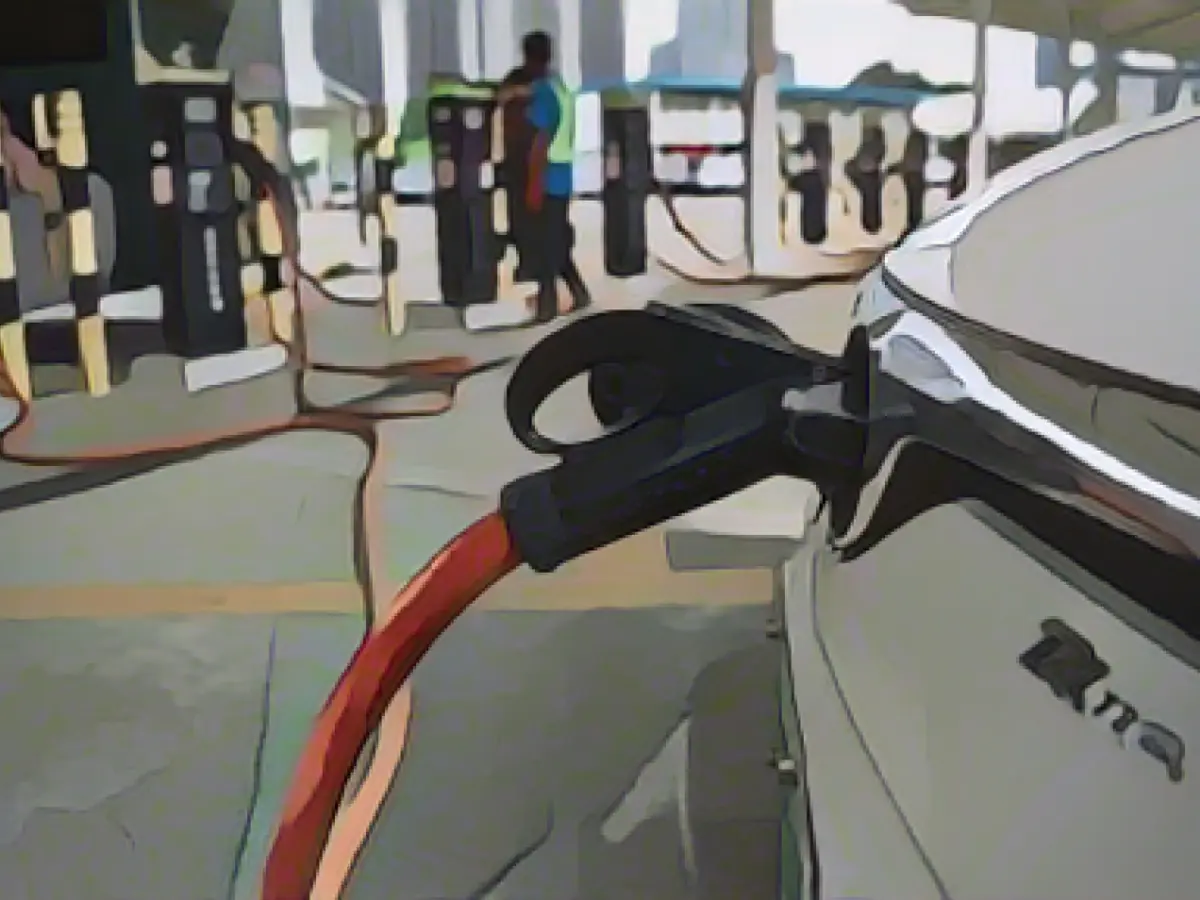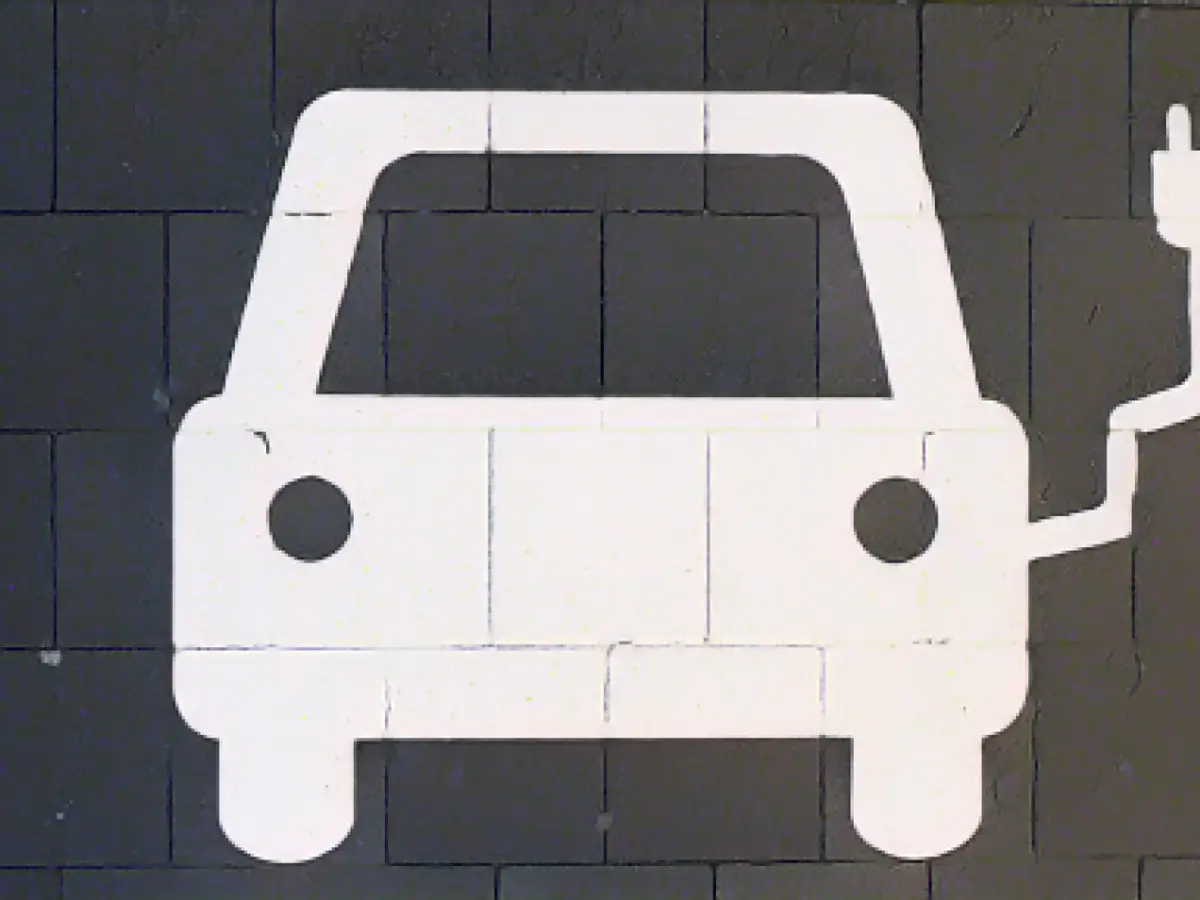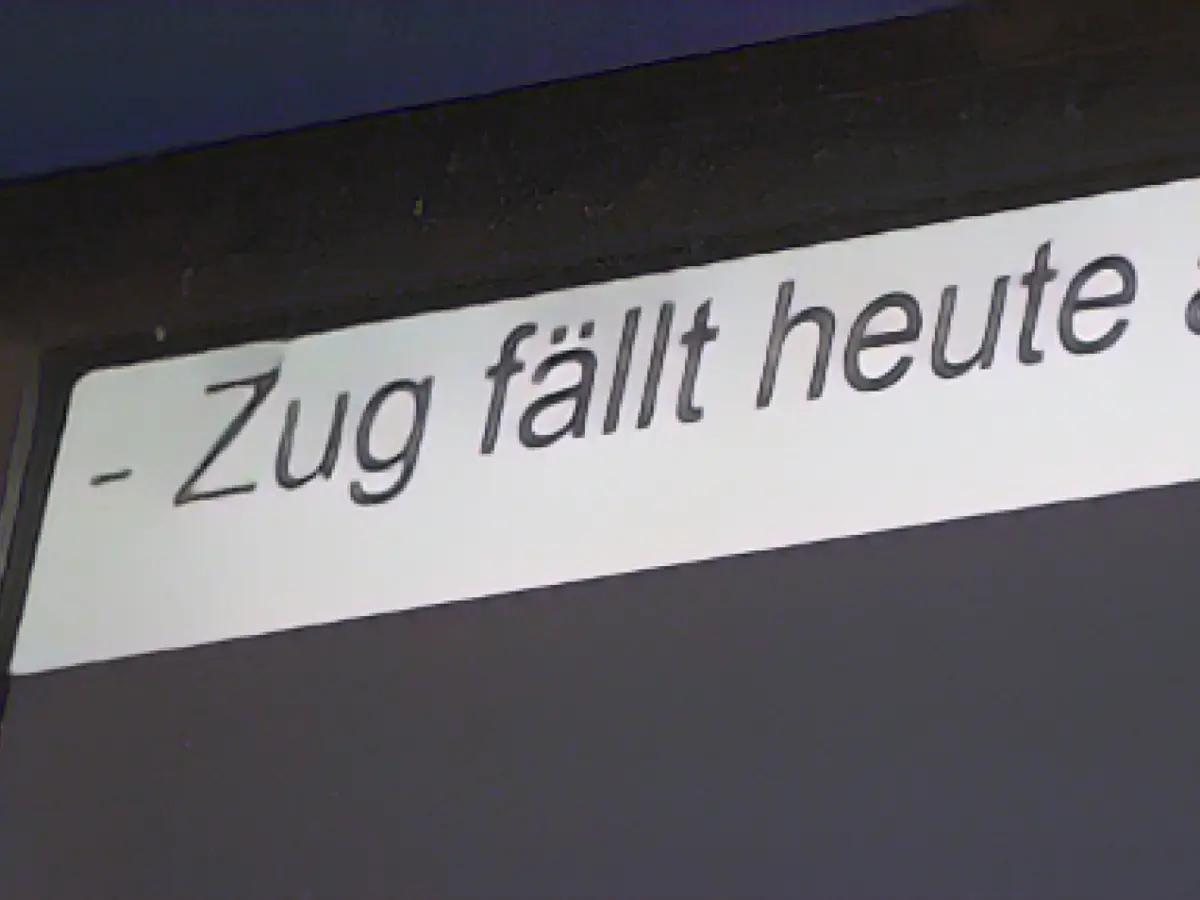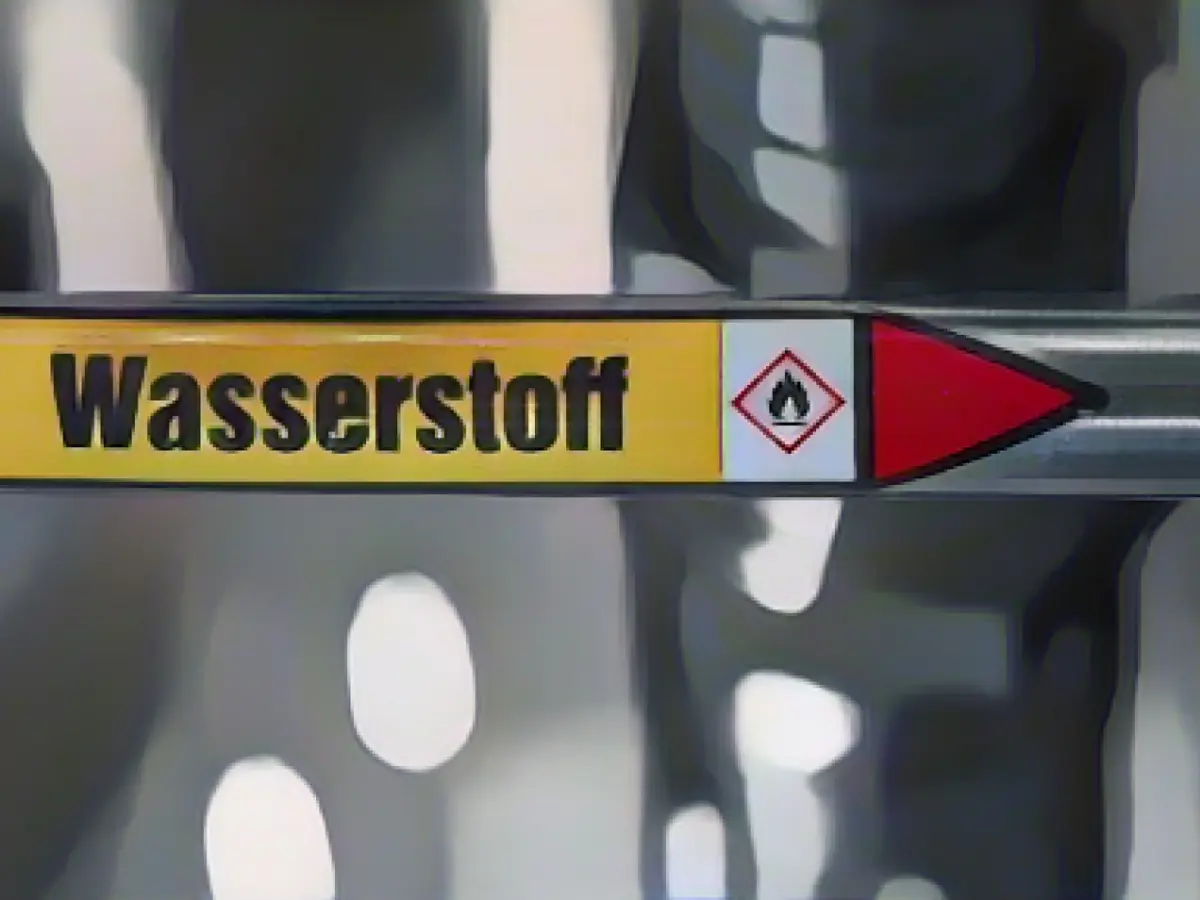Title: Discontent Over Sudden Termination of Electric Car Bonus in Germany
The abrupt decision by Germany's Economic Affairs Ministry, led by Robert Habeck (Greens), to phase out the environmental bonus for electric car buyers, causing dismay and indignation among many buyers. The subsidy, through which buyers could secure several thousand euros in state subsidies for purchasing an electric vehicle, was set to be phased out following a coalition leaders' agreement on the 2024 budget. However, the ban on new applications took effect suddenly on a Sunday, sparking concerns among buyers as they struggled to calculate the affordability of their new vehicle purchases.
The coalition leaders' agreement to phase out the subsidy caught many by surprise. The deputy leaders of the SPD parliamentary group, Detlef Müller, Matthias Miersch, and Verena Hubertz, urged Habeck to "organize a more reliable transition" for electric car buyers. They argued that many individuals had factored the premium into their car purchase plans, and the sudden cessation of it would pose significant financial challenges.
However, Habeck's Ministry of Economic Affairs rejected the proposal for a transitional solution, citing a lack of funds to support such an initiative. A ministry spokesperson conceded that the expiration of the subsidy would create an "unfortunate situation" for those who had planned on receiving the premium. However, the Ministry asserted that the abrupt termination of the funding program was necessary due to insufficient funds to process applications received after the Sunday deadline.
The almost immediate expiration of the funding program was a "joint decision" made with the Federal Chancellery, according to a ministry spokesperson. Critics, including members of the SPD parliamentary group, have been accused of making one-sided criticisms of this decision.
Habeck's Ministry claimed that all available funds in the 2023 financial year had already been consumed. The earmarked funds of 209 million euros meant for 2024 would only be sufficient if the funding was terminated with immediate effect, according to ministry sources.
Data from the AFP suggests that around 1,400 applications were being received every day, with an average funding amount of 4,000 euros per application. Each additional day of applications ended up costing the state around 5.6 million euros. If applications had been stopped by the end of the year, as initially expected, an additional 80 million euros in funding would have been required.
In response to the Ministry's decision, the FDP, another coalition partner, supported the move, arguing that it would contribute to the urgent need for budget consolidation. Meanwhile, industry expert Ferdinand Dudenhöffer warned that the abrupt end to the subsidy would significantly harm the German automotive industry, as the high investments required for electric car development would become more difficult due to this decision.
This situation is a concern for the German automotive industry as their competitiveness may be negatively impacted. Without substantial investments in electric cars, the German industry risks losing significant advantages over its Chinese counterparts. The Chinese are currently expanding their car industries to capitalize on domestic demand.
The CDU called out the traffic light government for leaving tens of thousands of car buyers in limbo. Vice faction leader Ulrich Lange criticized the government for causing "subsidy chaos" and eroding trust by abruptly stopping the state purchase premium for electric cars.
Since 2016, a total of around ten billion euros has been paid out for around 2.1 million electric vehicles via the environmental bonus. According to the German government, this funding program supported their goal of bringing a total of fifteen million fully electric vehicles onto the roads by 2030.
Related Articles
Enrichment Data:
The sudden abolition of state subsidies for electric vehicles in Germany created uncertainties, complications, and challenges for both consumers and automakers. The high costs of energy and excessive bureaucracy made the transition to electric vehicles (EVs) more difficult for the industry, according to industry analyst Jürgen Pieper and economist Dirk Dohse from the Kiel Institute for the World Economy (IfW)[1]. As a result, the industry is calling for clear, transparent, and stable policies to support the adoption of EVs, including expanding charging infrastructure and providing planning security for EV buyers [1]. The abrupt change in subsidies also posed challenges in achieving EU climate objectives, as seen in Spain where the suspension of the Moves III Plan disrupted the eMobility sector [5]. Automakers are preparing for 2025 CO2 limits by increasing EV production and introducing new models under €25,000, but they require stronger smart actions from governments to boost market demand [3].
[1] Jürgen Pieper, Dirk Dohse, Kiel Institute for the World Economy (IfW) [3] Peter Campbell, Autocar [5] Teresa Prat, El Pais [6] Stefan Borgwardt, Fresenius Medical Care [7] Claudia Kempf, Handelsblatt Global [8] Laura Laubschin, Porsche [9] Thomas Schäfer, Rheinische Post [10] Jürgen Jost, Sputnik International [11] Lorant Vincze, Waltzel & Vincze Rechtsanwälte [12] Philippa Collingborne, World Resources Institute [13] Gerhard Schöne, WWF Germany [14] Thomas Klau, Zentrum für Luft- und Raumfahrt [15] Mark Hammarberg, Fraunhofer Institute for Material Flow and Logistics (IML) [16] Herve Peeters, KU Leuven Louvain School of Management [17] Marc Engel, VDMA Committee on Political and Legal Issues [18] Tina Törnnauer, Jacobs School of Engineering, University of California, San Diego.
Source:








